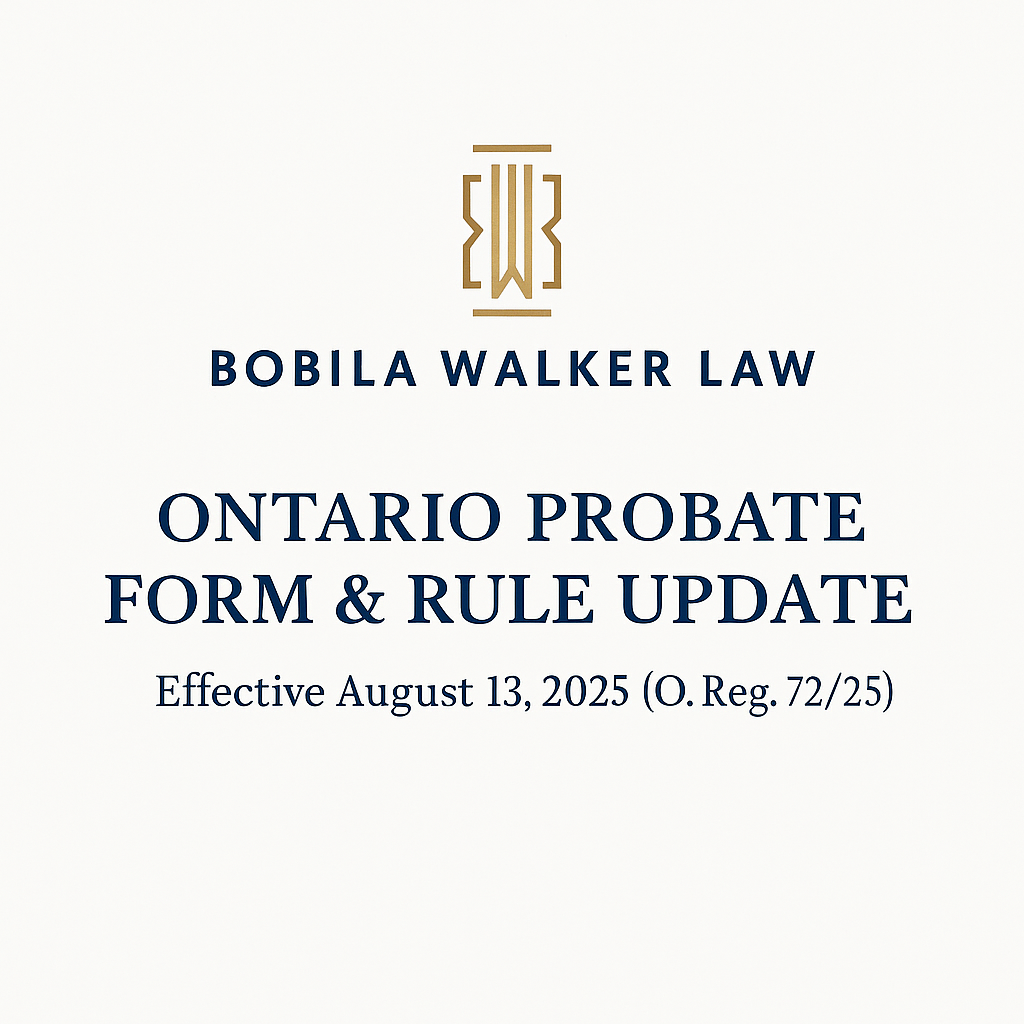Bobila Walker Law represented the applicant mother; Managing Partner Daniel Walker comments on the decision
October 2025 — Toronto, ON.
In a recent Ontario Superior Court decision, the court held that Hong Kong court orders granting a mother rights to determine her child’s residence constituted “rights of custody” under the Hague Convention on the Civil Aspects of International Child Abduction.
The ruling clarifies how foreign family-court orders are to be interpreted under the Convention and aligns Ontario jurisprudence with established international authorities on parental-abduction law.
Case Overview
The case involved a child born in Hong Kong in 2010 to separated parents. The Hong Kong Family Court had issued several orders between 2015 and 2023 granting the mother custody, care and control, and later, the right to travel with the child to Taiwan for parenting time under reciprocal undertakings. When the father later relocated the child to Canada without the mother’s consent, the mother — represented by Bobila Walker Law — applied to the Ontario Superior Court under the Hague Convention for the child’s return.
Justice acknowledged that although the father had later obtained a “sole custody” order in Hong Kong, the non-removal order and reciprocal undertakings still gave the mother meaningful decision-making authority over the child’s residence — a right recognized as “custody” under Articles 3 and 5(a) of the Convention.
Court’s Reasoning
The Court concluded that the mother’s right to object to the child’s removal and to compel their return to Hong Kong fell within the scope of “rights of custody.” The decision reinforces that the Convention looks to the substance of a parent’s legal rights rather than the labels used in foreign judgments.
This approach harmonizes Canadian case law with international authorities interpreting “rights of custody” to include any right to determine a child’s place of residence, even if another parent holds formal custody.
Daniel Walker’s Perspective
Daniel Walker, Managing Partner at Bobila Walker Law and counsel for the mother, was interviewed following the ruling by the Law Times:
“This decision provides much-needed clarity for families and practitioners dealing with cross-border parenting disputes,” Walker said. “It recognizes that non-removal orders and reciprocal undertakings — common features in Hong Kong and other jurisdictions — can amount to custody rights under the Hague Convention.”
He added:
“The court looked past the terminology of the foreign orders to their practical effect. That substance-over-form approach will help ensure consistency in how Canadian courts interpret international custody arrangements.”
Broader Implications
The ruling is expected to serve as persuasive precedent in future Hague Convention cases, especially those involving Asian jurisdictions such as Hong Kong or Singapore, where similar non-removal orders are common.




